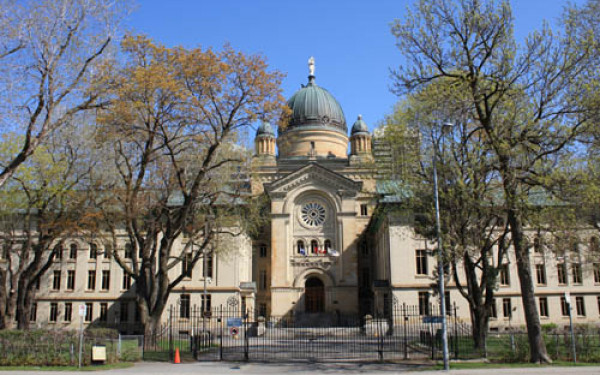CFS? More Like CF-Fesses
Breaking Down a Multimillion-Dollar Lawsuit
Back in 2009, a petition by Concordia students was served to the offices of the Canadian Federation of Students.
Summed up, it said: We want out.
On their website, the CFS claims to represent over 70 unions in universities and colleges, including the Concordia Student Union, Concordia’s Graduate Students’ Association, Dawson’s student union and graduate students at McGill. None of these associations identify as CFS members anymore.
The CFS is a national student organization composed of student unions across the country. It was set up in the 1980s to fight tuition hikes and student debt.
Since then the CFS has had a tumultuous history, especially leading up to 2010. Petitions like the CSU’s were sent by 11 other student unions in the Fall of 2009.
In 2010, after little acknowledgment of their petition, the CSU held a referendum on CFS membership. Concordia undergraduate students voted 72 per cent in favour of leaving the student federation.
In 2011, the CSU launched a lawsuit against the CFS for disregarding their petition and denying their referendum results, demanding over a million dollars in unpaid membership fees and imposing a new bylaw—which advocates for the union say makes it nearly impossible for student unions to leave.
The GSA launched a similar lawsuit in 2011 and was also accused of breaking bylaws and owing $200,000 in unpaid fees. The court cases were merged in 2013.
The trial is expected to start on March 9.
The Link reached out to the CSU and GSA, but leaders from both associations were legally gagged and declined to comment until Monday. The CFS did not respond to The Link’s request for an interview.
The trial can proceed in two ways: either the CSU and the CFS stick it out in court in the three weeks allotted by the judge, or they follow Simon Fraser Student Society’s example and settle out of court.
In the 2009 ruling on Simon Fraser Student Society’s case, Supreme Court Justice Richard Blair says students have enough expenses without paying for disputes between student associations.
“I would anticipate that the student fees paid to the SFSS and the CFS can be used more productively for programs directly benefiting those students rather than being consumed in more litigation,” he wrote.
The issues and what’s at stake
A bylaw amended at the annual general meeting in 2009—after the CSU and GSA submitted their petitions—would essentially make it more difficult for student associations to leave the CFS.
A motion was passed stating that no more than two referendums on disaffiliation could be held in a three-month period and that signatures by 20 per cent of students would be needed to validate petitions. It also modified a law that allowed a disaffiliation referendum every two years, changing it to the effect that it’s now impossible to call two votes on disaffiliation within five years of each other.
With these new rules, the CFS justified blocking members from severing ties. Of the 12 associations that called for a referendum in the 2009-2010 school year, the CFS refused to provide referendum dates for 10 of them. The CSU’s legal team claims the motion was passed illegally, meaning that approval fell short of the two-thirds votes in favour needed.
The CFS maintains that the CSU would have had a referendum in the fall, but it also told Dawson’s student union that their referendum dates would only be given if all the signatories on its petition were still students. This essentially meant a new petition would have to be collected before Dawson could vote on membership.
In the end, even after 72 per cent of students voting in the CSU elections chose to leave, the CFS rejected the results. The CSU is still considered to be a member, although it has no representation at the CFS.
An estimated $3 million of Concordia’s student money is at stake—it will probably be pulled from the Student Space, Accessible Education and Legal Contingency Fund if the court outcome is in favour of the CFS.
According to the Federation, the CSU owed over $1 million in unpaid dues accumulated since it joined in 1998. The CSU and Concordia University refuted those claims, arguing there were no outstanding dues. If unpaid fees since 2011 were added to that number—about $300,000 per year—the CSU would owe about $3 million.




_.final_._jpg__600_375_s_c1.png)


